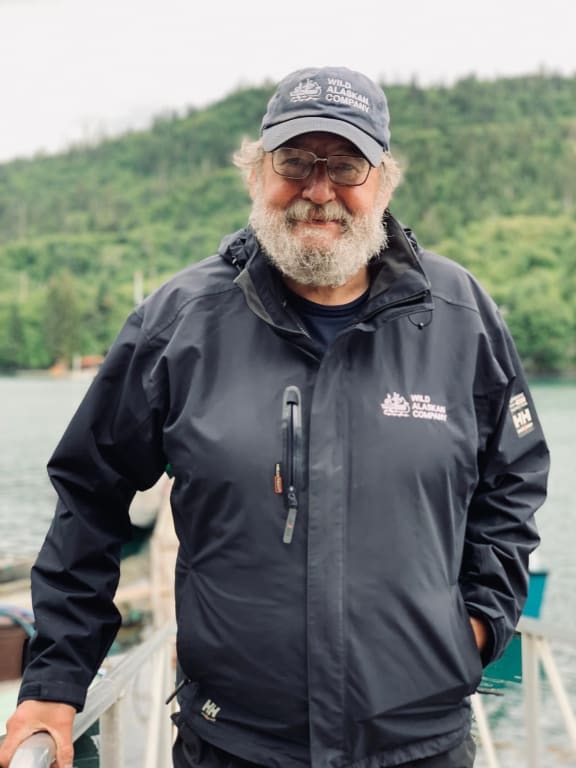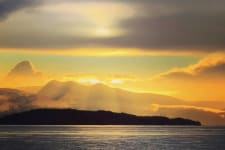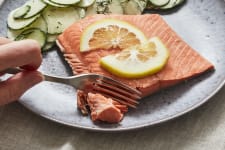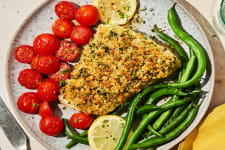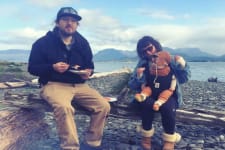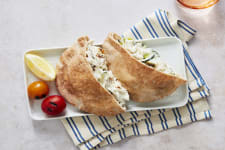This week’s letter comes with a heart swirling with sentiments — a profound sadness, new levels of gratitude and a deepened appreciation for my loved ones, our mandate as a company, and an even clearer sense of what it means to leave a legacy.
My husband Arron’s father, Walt, suddenly passed away at the end of last month. Walt was our north star, our compass and our rudder. In light of how elemental his story, insight, efforts and love paved the way for everything we do, I asked Arron, Wild Alaskan Company’s founder and CEO, to write this week’s letter — a tribute to his father.
---
Walter Bruyere Kallenberg — the man, the mystic, the legend, my father, my children’s grandfather, Wild Alaskan Company facilities engineer, and one of my very best friends — has completed his life’s journey in the physical realm. No longer bound by space and time, he is one with infinite love.
A mechanical engineer born in Kanakanak, Alaska, who studied aerospace astronautics and aeronautics, and commercial fisherman who religiously fished Bristol Bay for most of his life, he transitioned on July 22, 2024 — right at the end of the sockeye salmon run — putting his metaphorical boat up for the very last time to participate in the great cosmic energy exchange that occurs every season.
If you were fortunate enough to know my dad, you understand exactly why I am being so intentional about the words I choose to share this news. “I’m a spiritual being having a human experience” is just one of the many brilliant truths that he might drop during casual conversations with just about anyone — his language and rhetoric, forever interwoven with equal parts whimsy and wisdom.
Here are some more of his isms that today feel more like his soul’s manifesto:
“God is obvious. I know she loves me.”
“Let’s take care of each other.”
“The most important thing is to be life-positive.”
“You get to be the person you want to be.”
“May your home always be too small to hold all your friends.”
“You don't exchange energy in the universe without respect.”
“The cost of having your act completely together is having no act at all.”
“Try not to do anything that looks too stupid ten thousand years from now.”
“Is is to be, if you don’t is you ain't.”
On the topic of mortality specifically, my father’s wit and whimsy persisted. Growing up in rural Alaska and working as a commercial fisherman, he was no stranger to death. He would say, “Death is just the next great adventure,” and “You’re only going to be dead for as long as you weren’t alive before you were born.”
Many philosophers, especially the stoics, have asserted that the contemplation and acceptance of death is a prerequisite for living a truly authentic and fulfilling life. Yet, far fewer have been able to so earnestly marry the gravitas and playfulness of such a morbid topic quite like my father. Once, while he was recounting a life-and-death adventure he had on the high seas, my wife asked him, “Were you scared?” He replied, “Was I scared?? No! I was BUSY.” And that’s how he lived his life — a man perpetually biased toward action whose soul was right with its maker.
My father was a wizard and a warrior. A man who designed and built his own fishing boat, the Mary K, on which he fished for decades and on which I grew up fishing with him. A mad scientist with a tender heart and a love for people from all walks of life. Not only the life of the party but the one who made every moment of every day feel like a party. A master in the art of is-ing — being with intention. A selfless giver whose currency was time, effort, intention and insight. He would regularly appear in a room as a sort of unassuming oracle, forever ready to wax poetic and share some laughs, and he’d always leave you thinking and with a little more awe for the universe. He didn’t just cook — he “built food.” And he especially loved to “build food” for and feed his family. He didn’t simply enjoy — he made it a point to “peg the fun meter.” He lived fully, boldly, and wildly and was, without a doubt, the most fascinating, unique and inspiring character I’ve ever known.
It is said that the sages are blessed with a quick transition. His death at the age of seventy-five was sudden, unexpected, and very swift. His mind and body were active until the very end. The week prior, he had been traveling outside for work. Three days before he passed, he returned to Alaska, his natal stream. Looking back, those days were such a blessing. My sister, who lives overseas, and I were both in town and got to spend meaningful time together with him.
We do not believe he suffered much at all in the moment — if anything, his main concern seemed to be for his “shieldmaidens,” my sister and his longtime partner, both of whom were present. He had been picking strawberries in his yard when he suddenly began to feel a little off, which was very out of character. When asked if he was okay, he answered, “Maybe not,” a strong indicator. Dad was always alright. He made his way into the kitchen, a room where he could usually be found in his fullest element and where his heart was happiest.
Those who knew my father know that he was a man who talked with his hands. And so it was in his final moments — he seemed to accept what was happening, throwing his hands in the air as if to say, “Welp, this is it!” with a bittersweet anticipation of his next great adventure. I like to think this gesture was his last words.
He then turned his head to the side and stared into the great threshold as he began to crossover. Seconds later, he lost consciousness in the arms of his partner while sitting in his “cooking chair”— the unofficial throne of his food-building joy. The entire process, from picking strawberries to being unconscious, only took about five minutes.
He died the way he lived — in the moment, full of life, love, and reverence for the beautiful mystery of life.
Dad was not into self-aggrandizing behavior. He once told me, “When I die, I don’t want a big tombstone, just a little rock in the woods somewhere.” As luck, God, or the universe would have it, my four-year-old son spent the week before his grandfather’s passing painting rocks with Gramma. They painted the rocks to resemble strawberries. So now we have 14 little strawberry rocks with which to honor and remember him.
Here is a quote about strawberries:
"Strawberries can represent the sweetness of life, the small pleasures that make it worth living, and the ability to appreciate the present moment. They can also symbolize hope, goodness, sacrifice, love, and delight." Those who knew my father know how much these words embody his spirit. The day after he died, we all ate the strawberries he had picked…for us. Picking those strawberries was his final act of service to his family.
As my father once said, “You know it was real when your heart is broken.” And it is one hundred percent true that losing my dad is incredibly heartbreaking. It is also true that the sadness comes in waves. But losing Walt Kallenberg is so much more than that.
On one hand, it feels intensely personal — until July 23, 2024, I’d never lived a day on this planet without my father. On the other hand, I know losing a loved one is an unfathomably common human experience. What has been perhaps the most unexpected part of this journey for me are all the positive emotions I’ve experienced over the past few weeks, including all the laughter, the heightened remembrance, and the great flood of gratitude that washes over the waves of grief — all testaments to my father’s character and spirit.
Death has a way of thrusting life into high definition. You realize we’re all just one phone call away from our entire world changing. You stop taking so much for granted, including and especially all the amazing people in your life. Death also has a way of revealing the essence of a person, which can be hard to appreciate fully when they’re always right there.
I am extremely grateful for all of the time I had with my father. It is a true honor to be his son and to count him among my best friends. He has set a very high bar for which I aspire to reach with my own children. He was always there for Monica, me, and our kids — especially over the last few years when he stepped, masterfully, into his cherished role as Grandpa.
I miss him so so so much. I’ve accepted that I’ve entered a new phase of my life — the phase where I can no longer pick up the phone and call my dad. I’ve also accepted that I will continue to miss him for the rest of my life. He was an amazing father, grandfather, “running partner,” friend, and a true Wild Alaskan! Simply put, Dad spelled love T-I-M-E.
We don’t get to take anything we do or create with us. When we depart this world, it’s what we leave behind that counts. My father lived by example and left so much good behind. His spirit lives on in his musings, his work, his family, and in our memory. May we all be so blessed to leave a life so well lived.
I discovered this poem at the top of his journal:
“The Universe is is-ing.
Sometimes what it ises makes you sad.
Sometimes what it ises makes you happy.
The Universe ises on..”
Rest in Peace, Walt Kallenberg. I love you, Dad.
---
It is my hope that we will all forever be illuminated and inspired by the artful way in which Walt lived his life. To reach for a balance of both simplicity and depth. To always, without condition, show up for love. And may each of us strive to seek, with wonder and joy, the way my sweet, soulful father-in-law always did. I know I will.
Live Wild!
Monica
Pictured above: Our beloved Walt, my father-in-law, standing on the dock at Halibut Cove, across the bay from Homer, Alaska.
